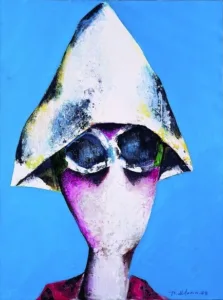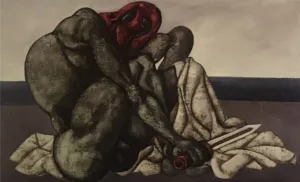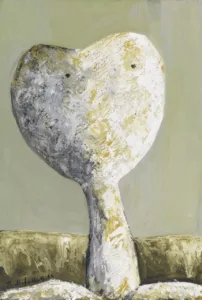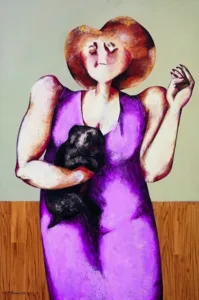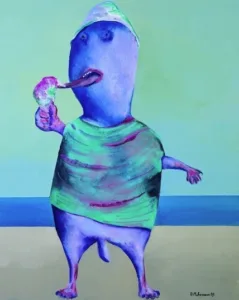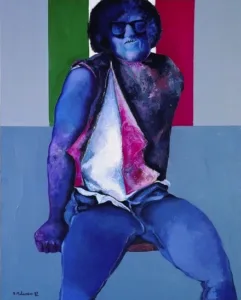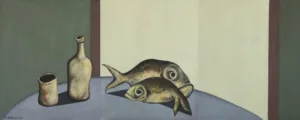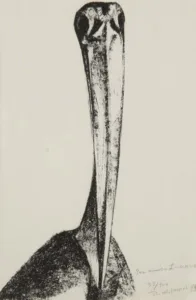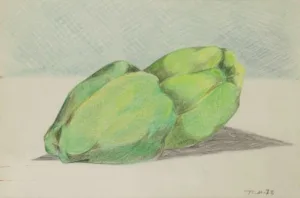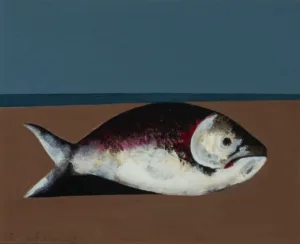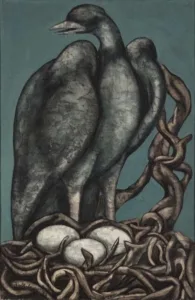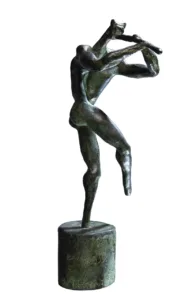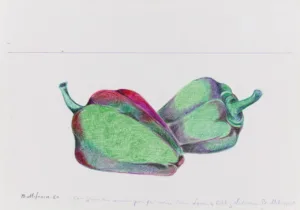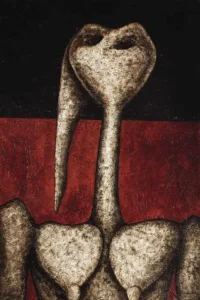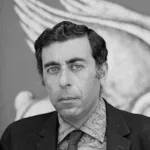
Bahman Mohassess
b. 1931 / Rasht
Bahman Mohassess was an Iranian painter, sculptor, translator, and theatre director, who was born in 1931 in Rasht, Iran. He is considered one of the most influential and original artists of modern Iran, and has been dubbed as the "Persian Picasso" by some critics. Mohassess studied art at Tehran University of Art and later at the Accademia di Belle Arti di Roma. He was part of an avant-garde artistic movement in Iran, along with his cousin Ardeshir Mohasses, a famous illustrator and cartoonist. He participated in several international exhibitions, such as the Venice, São Paulo and Tehran Biennale.
Mohassess was also a prolific translator of literary works, such as those by Eugène Ionesco, Malaparte and Pirandello. He directed plays, such as Pirandello's Henry IV, at the Goethe Institute and Ghandriz Gallery in Tehran. Mohassess was known for his rebellious and irreverent attitude, as well as his openly gay identity, which was stigmatized in Iran. He often destroyed his own works, either out of dissatisfaction or fear of censorship. Many of his public works in Iran were also damaged or demolished after the Islamic Revolution in 1979.
Mohassess lived in Rome for most of his life, where he died in 2010. He was the subject of a documentary film by Mitra Farahani, titled Fifi Howls from Happiness, which was released in 2013. The film depicts the last months of his life, as well as his artistic legacy. Mohassess's works are highly sought after by collectors and museums, and are regarded as expressions of his unique vision and personality. His paintings, sculptures and collages often feature distorted and grotesque figures, reflecting his views on human condition, society and politics.

